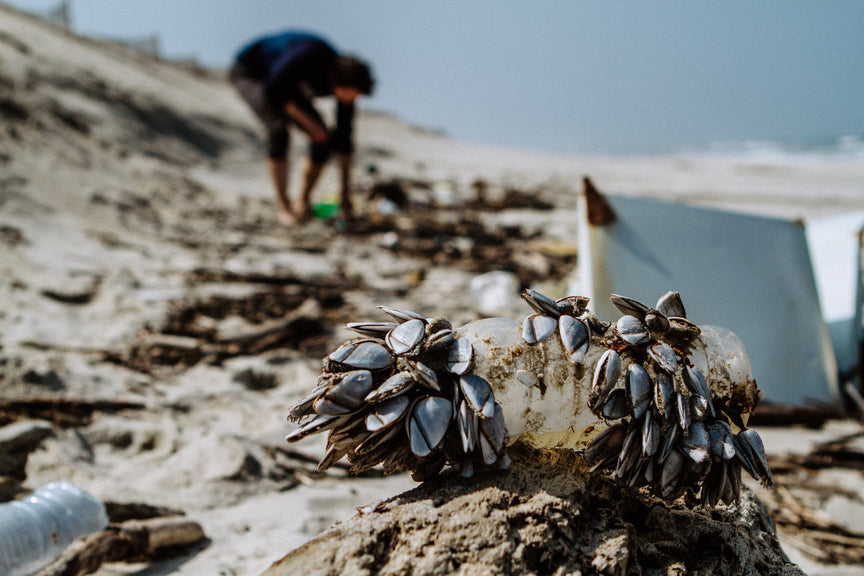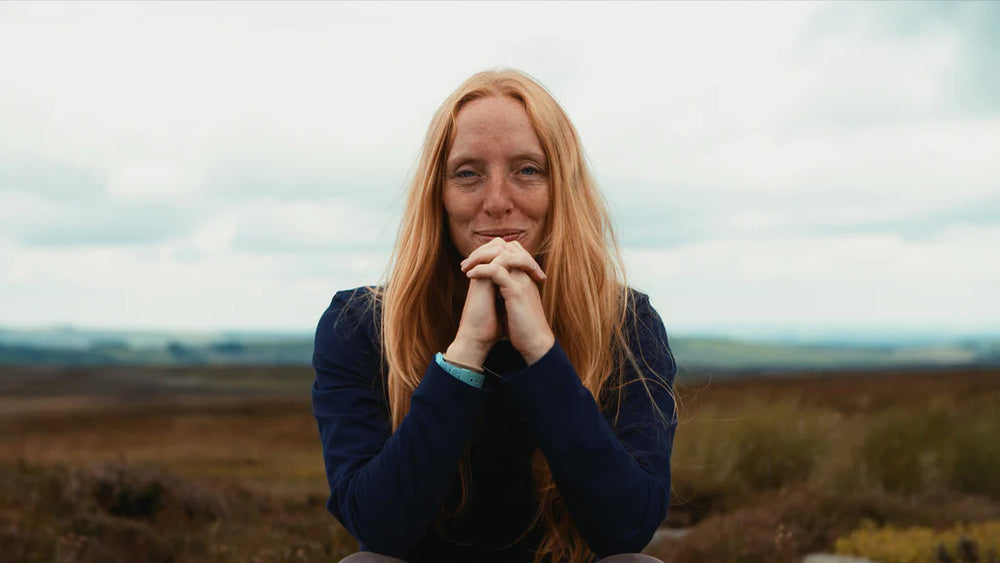Langbrett's Alex Nolte and Oli Spies are longtime Millican friends. Their non-for-profit organisation Stop! Micro Waste raises awareness of microplastic pollution, by providing people with knowledge and solutions to help reduce their environmental impact. We caught up with them to find out more about the actions and future of Stop! Micro Waste.
Words & photography by Stop! Micro Waste | @stopmicrowaste
Tell us about Stop! Micro Waste. What is the inspiration behind the organisation?
We started with Langbrett, we produce plastic free and ethically made shoes and textiles, as well as selling clothes and accessories from brands with a similar ethos. A couple of years ago, we spoke with a marine biologist who made us more aware of microplastic pollution. After some of our own tests, we saw how problematic it really is - no one seemed to really know anything about it, so we wanted to find a way to communicate the problem to a wide range of people and to reduce microplastic pollution with easy and hands-on solutions. That’s how Guppyfriend was born. We decided to build a non-profit initiative around it, to keep spreading the word and to inform more and more people. STOP! Micro Waste is dedicated to raising awareness about the (micro)plastic problem. We aim to explore and initiate ideas on how to avoid, replace and re-use plastics in everyday life, and beyond.
Stop! Micro Waste Academy STOP! Plastic Academy trains students to be ‘plastic experts’. What do you hope to achieve by teaching younger generations about microplastics?
The STOP! Plastic Academy spreads our knowledge based on our research findings, scientific papers and experiences. Our Train the Trainer program enables young adults and also company representatives to spread the acquired knowledge to their colleagues, customers and peers. By learning about the problem and how easy it actually is to reduce microplastic pollution, people (and especially younger generations) are motivated to change their washing and buying habits.


To help raise awareness about plastic pollution, you provide ‘tangible solutions’, such as Guppyfriend. What’s the process behind developing these solutions?
After we came up with the idea to develop the Guppyfriend Washing Bag, we did a lot of tests with scientific partners like the DTNW, Fraunhofer Institute, the University of California and several industry partners. It took quite a long time to come up with the perfect material to finally got the Washing Bag on the market. When we think of more ideas, we also reflect on our everyday life and our own habits to find hands-on solutions that work as a daily reminder to change your own behaviour.
Can you tell us what is coming up for Stop! Micro Waste?
At the moment we are working on more filter solutions to prevent microplastics from entering our water environments, like a filter for cleaning buckets and also a washing detergent that prevents microplastic fibres from breaking. All revenues from the Guppyfriend Washing Bag and future products go into our STOP! Plastic Academy, which is always work in progress.
For those out there who want to minimise their plastic waste, or go plastic-free, what one thing would you recommend?
We have to reflect on our own behaviour and think about how to change our washing and buying habits. Buy less but better. We have developed the Ten For The Ocean washing guide - ten simple rules to turn your washing machine into a 'green washer'. By following these rules, you can easily reduce your microplastic footprint.




